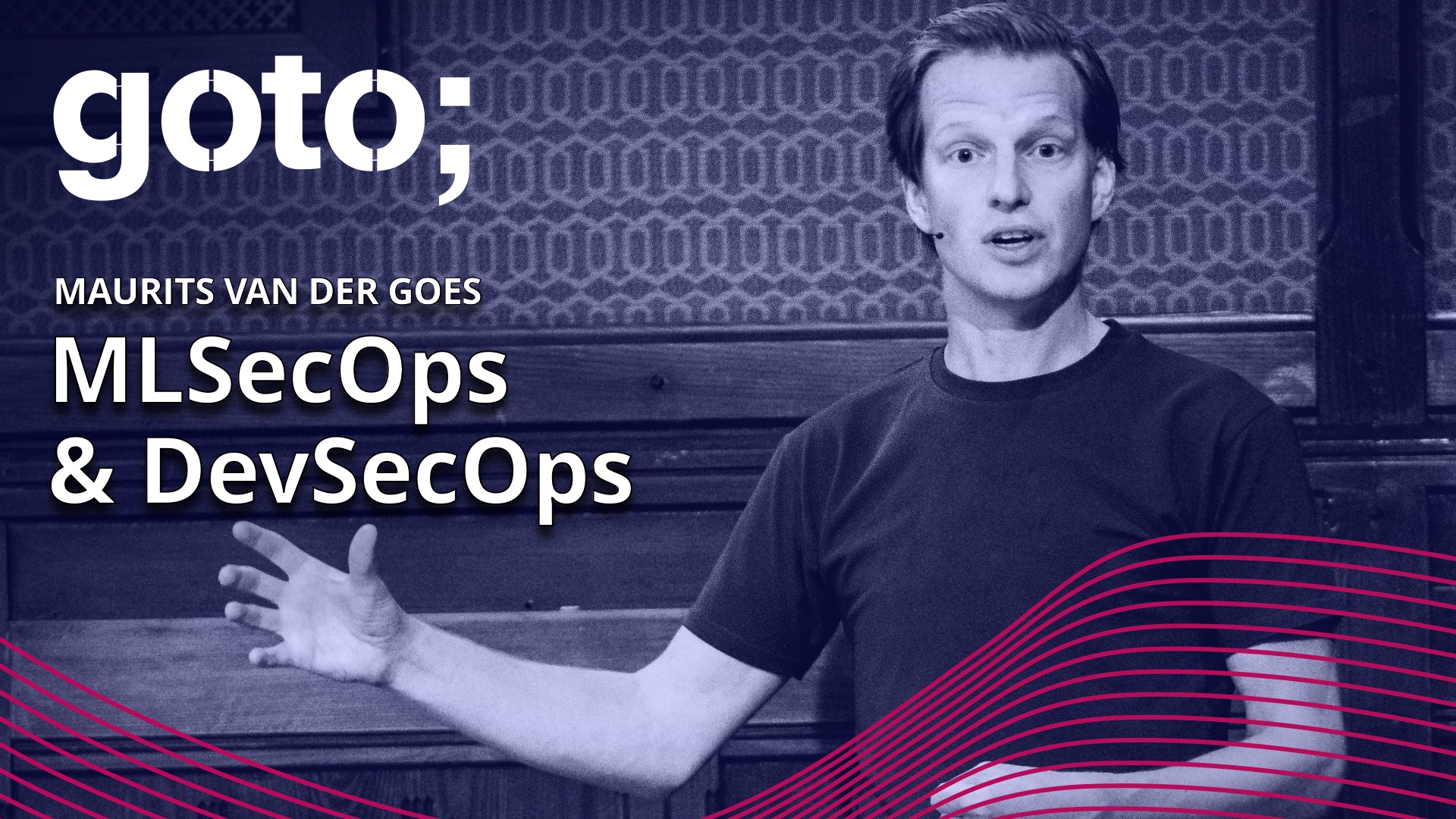cyber security

Mastering Web Security: Myths, Strategies & More!

Application Security: Inside Out

Securing the JVM

Does Agile Make Us Less Secure?

A Practical Guide to Cybercrime

OAuth Tokens As Your Identity API

The Future of Security

Mapping CI/CD Attack Surfaces

Crafting Robust Architectures for a Resilient Future
![Lessons From Billions of Breached Records [Live Streamed]](https://files.gotocon.com/uploads/images/conference_63/sessions/2560/original/troyAAR23.jpg)
Lessons From Billions of Breached Records [Live Streamed]

Concurrency Abstractions for Application Security

Protect Your Code with GitHub Security Features

Competence Development Through Capture the Flag and Virtual Hacker Labs

Has My IoT Device Been Hacked? Establishing Trust with Remote Attestation

Shaping Language in Cybersecurity For People

Principles For Secure and Reliable Systems

Crypto Heist: The Aftermath of a Government Website Cryptojacking Attack

Sandworm Q&A

It’s a Kind of Magic: Computation on Ciphertexts

AI Powered Bug Hunting

AI Powered Bug Hunting

#ToyFail: Is your Child Safe from the Internet of Things?

#ToyFail

Security and Trust in a Microservices World

From the OWASP Top Ten(s) to the OWASP ASVS

Cloud Native is about Culture, not Containers

Ethereum Fundamentals

From the OWASP Top Ten(s) to the OWASP ASVS

Building a Smart Security Camera with Raspberry Pi Zero, Java and AWS

Insecure Transit - Microservice

Royal Testing: Purple Teaming to Build & Secure Applications Better!

Automating Security & Compliance (for Fun & Profit)

Internet of Targets

Keynote: The Current State of Automotive Security

Security in the Delivery Pipeline

Secure Substrate: Building the Moby Whale

Internet of Targets

Putting Your Security on the Wire

Containers From Scratch

Securing APIs and Microservices with OAuth and OpenID Connect

Confusion in the Land of the Serverless

Let's all just agree: Achieving consensus in Blockchain-based systems

Common API Security Pitfalls

Introduction to OAuth 2.0 and OpenID Connect

Principles for Developing More Secure Systems

Content Security Policies: Let's Break Stuff

SSL/TLS for Mortals

DevSecOps, Containers, and Shift-Left, are those just Buzzwords? And why should we Care?

AppSec: From the OWASP Top Ten(s) to the OWASP ASVS

Securing the JVM

Content Security Policies: Let's Break Stuff

Securing the JVM

OAuth and OpenID Connect in Plain English
![Building Secure React Applications [VIRTUAL]](https://img.youtube.com/vi/O91hJJ5KMLs/maxresdefault.jpg)
Building Secure React Applications [VIRTUAL]

Practical End-to-End Container Security at Scale

Building Secure React Applications

Spring Cloud Gateway: Resilience and Security

Machine Learning Security Operations at One of the World's Largest Brewing Companies

Adapting DevOps in a World of Growing Software Supply Chain Attacks

Practical Tips and Tricks for CI/CD Success

Static Code Analysis - A Behind-the-scenes Look

Beyond Passwords: How WebAuthn Actually Works

Building Images For The Secure Supply Chain

The One Where We Threat Model During Development

Security By Design

Catching Commits to Secure Infrastructure as Code

Privacy, Crime, National Security, Human Rights & You in the Middle

One Does Not Simply Add MFA

One Does Not Simply Add MFA

One Does Not Simply Add MFA

GitHub Advanced Security: Helping Developers Secure the World’s Software

Cryptocurrencies Are Traceable & What Is Crypto-jacking?

The State of Application Security 2023: Learnings from 4 Million Scanned Services

Using IAST to Unlock the Benefits of DevSecOps

AI Powered Bug Hunting

A Deep Dive into the Past, Present & Future of OAuth

Privacy-First Research with OpenSAFELY

Building Layers of Defense with Spring Security

HORRORLARITY

Think like a Hacker

Building a Self-driving RC Car

The Evolution of Threat Models for Secure Communication Products

An Insider's Guide to Cloud Computing

#ToyFail: Is your Child Safe from the Internet of Things?

#ToyFail

From the OWASP Top Ten(s) to the OWASP ASVS

From the OWASP Top Ten(s) to the OWASP ASVS

Privacy in Software

Keynote: Surveillance & Cryptography

Putting Your Security on the Wire

#ToyFail

Practical Data Privacy

AppSec: From the OWASP Top Ten(s) to the OWASP ASVS

Beyond Passwords: How WebAuthn Actually Works

Creating Local-First Collaboration Software with Automerge

AppSec: From the OWASP Top Ten(s) to the OWASP ASVS

From the OWASP Top Ten(s) to the OWASP ASVS

Hacking the Internet of Things for Fun & Profit

From the OWASP Top Ten(s) to the OWASP ASVS

The State of Application Security 2023: Learnings from 4 Million Scanned Services

Hacking the Internet of Things for Fun & Profit

Code as Risk

AI Powered Bug Hunting

Crypto Heist: The Aftermath of a Government Website Cryptojacking Attack

A Practical Guide to Cybercrime

The Future of Security

AI Powered Bug Hunting

AI-Powered Bug Hunting

Keynote: The Current State of Automotive Security

AI Powered Bug Hunting

Sandworm Q&A

How The Hack?

Hacking the Internet of Things for Fun & Profit

The One Where We Threat Model During Development

The Evolution of Threat Models for Secure Communication Products

Competence Development Through Capture the Flag and Virtual Hacker Labs

The Best of GOTO Book Club Part Two

AWS Cookbook: Recipes for Success on AWS

Practical Data Privacy: Enhancing Privacy and Security in Data


Advanced OAuth and Pitfalls

Understanding the Secrets of OAuth 2.0 with Aaron Parecki

Security Chaos Engineering

Cloud Native Application Protection Platforms

Insider's Guide to Cloud Computing

Practical Data Privacy: Enhancing Privacy and Security in Data

How to Adopt a Seamless Shift-Left Security Process
From Sci-Fi to Reality, Quantum Computers Are Coming!

How to Keep Your Cloud-Native Apps Secure

Developing in Blockchain: The Need-To-Know When Getting Started

Mastering Web Security: Myths, Strategies & More!

Crafting Robust Architectures for a Resilient Future

The Current State of Cyber Security

Technology’s Impact on Humankind and Where We’re Headed Next

Bridging Cybersecurity: Detectify

A Container Security Checklist

Java Security and the Java Ecosystem

Should We Be on the Lookout for OAuth 3.0?

Expert Talk: Software Security

Mastering Web Security: Myths, Strategies & More!

The Current State of Cyber Security

Expert Talk: Software Security

Unlocking the Web: Exploring WebAuthn and Beyond

Katie Paxton-Fear
Manchester Metropolitan Uni...
Occasional Bug Bounty Hunter and Educational YouTuber

Katharine Jarmul
Probably Private
Privacy/Security Expert at Probably Private & O'Reilly Author

Andy Greenberg
WIRED Magazine
Author of "Sandworm" and "Tracers in the Dark". Writes about security, privacy, information freedom, and hacker culture.
Browse all tags
Here























